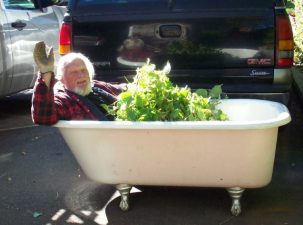 Earthworms to the rescue! Egypt plans to use them to eat through millions of tons of organic waste each year.
Earthworms to the rescue! Egypt plans to use them to eat through millions of tons of organic waste each year.
Waste, after corruption and smog, is probably Egypt’s number one nemesis. Everywhere one travels – even the most popular tourist spots – is overrun with organic and solid rubbish. Finally, the Ministry of Agriculture is getting serious about addressing the problem.
Although not a solution for solid waste and recyclables, the government is considering ordering tons of special earthworms from Australia that are capable of processing huge quantities of agricultural and organic waste, as well as polluted water. The worms then create a byproduct that can be recycled.
In Egypt, 34,000 tons of organic waste are produced each day. 32% of that is generated in Cairo, while organic waste from Giza, Alexandria, and Cairo put together account for over 50% of the country’s total waste. Pigs used to treat waste previously were culled following the international swine flu scare.
Today most of the organic waste is buried while the agricultural waste is burned, contributing to the black cloud that is ruinous to air quality and citizen health in the country’s capital. The Egyptian government is beginning to realize that a lot of the waste can be recycled, that it is a natural resource.
Enter Australia’s superpower earthworms from Australia.
According to Al-Masry Al-Youm, 1,000 tons of earthworms can weasel their way through 1,000 tons of organic waste every day. In the process, they create a byproduct that renders soil very fertile. They can even be used to treat sewage water, as the worms are able to munch through heavy elements and acidic water, creating water clean enough to use for irrigation.
According to the Ministry of Agriculture’s Climate Research Department, 26-28 million tons of waste can be recycled every year to create fertilizers and even natural gas.
The Center for Agricultural Research intends to use the worms for five years to clean up the current environmental problems. Surplus worms will be used as a high-protein feed for fish and poultry.
More on Egypt environmental issues:
Out of Sight, Out of Mind. How Egypt Cleans Up
Black Smoke Chokes Cairo’s Skies
Egyptian Palm Tree Faces Extinction




Worms will be able to help Egypt in many ways!
Worm composting also known as worm farming has continually gained popularity in recent years! It is a simple but effective way to convert organic materials that would usually be dumped at landfill sites into nutrient rich soil conditioners with the help of compost worms.
Worm composting can be fun and has a positive impact on the environment.
Worms recycle organic waste and convert it into nutrient rich worm castings and worm tea.
Worm castings and worm tea are amongst the best soil conditioners and organic fertilizers known to man.
They improve soil structure and act as natural pesticides.
It is a low maintenance, easy process, and produces an excellent plant food that will slowly release its nutrients to flowers, trees or vegetables.
Compost worms can as well be used to recycle your dog poop and the finished worm castings can be used to improve flower beds and garden soil !
Only a few of the 3000 kinds of earthworms that live on our planet are ideal to be used in worm farms, may it be domestic bins or bulk beds that can host millions of juicy compost worms.
Worm composting has lots of benefits for all involved in the process!
The most popular worms are the European Night crawlers (Eisenia Hortensis) and Red Wigglers or Red worms (Eisenia Foetida or Eisenia Fetida).
———-
How does the process work?
Worms are placed in a worm bin and are fed with organic matter.
Worm food usually consists of kitchen scraps or garden waste but can basically be anything that has ever been alive and is now dead.
Wet waste is added to worm bins and the compost worms will eagerly eat the organic matter as it starts to decompose.
They consume up to half their body weight of food per day.
While they digest it they richly enhance its fertility values, improve its water holding consistency and deposit their droppings known as “worm castings” usually close to the surface of their living space.
Vermiculture can be done nearly anywhere.
You can set up small worm bins under kitchen sinks or in store rooms of apartment dwellers. Bigger domestic bins serve small and large families and home owners.
Commercial sized solutions are set to work on farms, landfill sites or service big hotels.
Worm composting is still a niche market and has huge growth potential for many years to come.